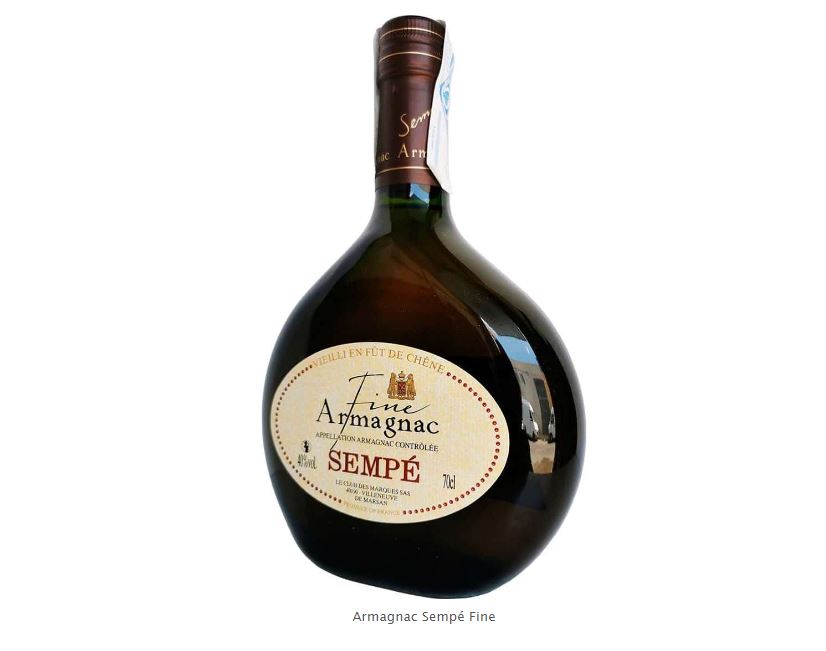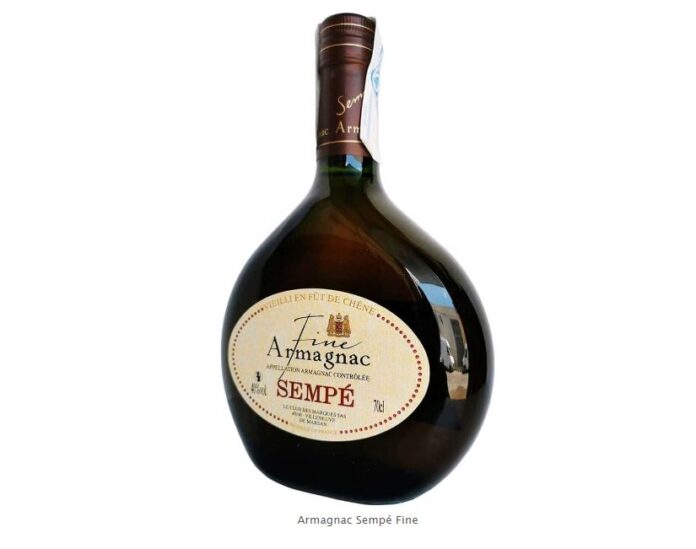
Armagnac is a distinctive kind of brandy. This spirit is produced in the Armagnac region in Gascony, southwest France. Armagnac is invariably distilled from wine that is made from a blend of grapes including Baco 22A, Colombard, Folle Blanche, and Ugni blanc. The procedure traditionally uses column stills rather than the pot stills that are used in the production of cognac. Armagnac, however, is predominantly made from ugni blanc grapes and the resulting spirit is then aged in oak barrels before release.
The region of Armagnac was one of the first areas in France to begin distilling spirits. But the overall volume of production is far smaller than cognac production. Armagnac, therefore, is less known outside Europe. Moreover, Armagnac is for the most part made and sold by small producers. Whereas cognac production is dominated by big-name brands like Courvoisier, owned by Beam Suntory; Hennessy, Martell, and Rémy Martin.
How Good is Armagnac for Your Health?
Armagnac does not interfere with the first type of clotting. However, it is beneficial with the second type of clotting. Moreover, it is better than aspirin as it does not thin the blood. Recent research that is yet to be published reveals that Armagnac might also have other health benefits mostly to do with obesity.
Armagnac spirit is distilled from the 14th century onwards. It is probably the oldest premium spirit in the world. Much mystery, however, remains regarding the early history of Armagnac. Nevertheless, it is clear that Armagnac was originally developed for medicinal purposes.
The Beginning of Armagnac
A treatise dated 1441 best describes Armagnac. It says more than 30 medicinal uses of Armagnac. And another manuscript written in Latin in 1310 describes Armagnac as well. This book mentions how to keep healthy and remain in good form.
Master Vital Dufour, a medical man from Eauze, refers to Armagnac and praises it with many virtues. The translation states that Armagnac disappears redness and burning of the eyes. It stops them from tearing and cures hepatitis. It sobers consumption adhering, alongside curing gout, cankers, and fistula by ingestion Armagnac restores the paralyzed member by massage and heals wounds of the skin by application. When retained in the mouth, Armagnac loosens the tongue and emboldens the wit.
Health Benefits
Timid individuals should therefore try Armagnac from time to time. Partaken in moderation, Armagnac enlivens the spirit, recalls the past to memory, renders men joyous, and retards senility alongside preserving youth.
This promise of longevity is amply confirmed by the fact that people in Gers live the longest. Gers is a county in France where Armagnac is mainly produced and widely consumed.
There has been increasing attention to the so-called ‘French Paradox,’ in recent years. This refers to the fact that although the French experience much lower rates of coronary heart disease than Americans although they consume far more saturated animal fat than Americans do.
Recent Studies Worldwide
Studies conducted worldwide have documented the fact that moderate drinkers of alcoholic beverages, particularly red wine have a lower incidence of a variety of diseases than nondrinkers. Nevertheless, it is less known that in Gers, where Armagnac consumption is the greatest has a coronary mortality rate that is much lower than in the rest of France.
A recent study by Professor Nicholas Moore, a researcher at the University of Bordeaux, documents that consuming Armagnac helped prevent blood clots among people.
Moore goes on to say that the study started because there are some of the lowest cardiovascular disease rates in the world in the southwest area of France. Numerous theories have been put forward about why this should be. Wine, a Mediterranean diet, and a stress-free life were all considered. It was observed that they might have some effect. It was thought that maybe Armagnac could be another reason.
As a result, they tested de-alcoholized Armagnac on human platelets in a test tube as well. It was found that it had an anti-platelet effect that acted in a similar way to the anti-thrombosis drug Plavix. Normally platelets are required for clotting when the skin is broken. And it can also lead to heart attacks when they clot in the wrong place.
Finally, they tested it on rats and found that thrombosis decreased as a result. Subsequently, they tested it on humans as well. These volunteers were given three centiliters of Armagnac every day. While the others had the same amount of Vodka of the same alcoholic strength. It was found that positive effects were there on the humans who had Armagnac. This goes on to show that small amounts of Armagnac daily will help contain heart disease.
Armagnac is distilled in a specific way. It is then aged in oak casks for years not months. Probably, it is likely to be this combination that produces positive effects. The process eventually changes the chemical makeup of the spirit.
Armagnac Helps Fight Obesity
Normally, there are two types of clotting that platelets are involved with. The first one normally is the adhesion to collagen which helps when the skin is broken. The second one is the clotting that leads to heart attacks. As mentioned earlier, it happens when blood clots in the heart.
Armagnac never interferes with the first type of clotting. But is beneficial with the second type. And it is far better than aspirin because it doesn’t thin the blood.
Rats have been shown to lose weight when given Armagnac. Armagnac reduced consumption and appeared to battle the food once it had been consumed.
The best amount of Armagnac to have every day seems to be three centiliters. More than that could also have bad effects. When consumed in moderation, Armagnac could guard against blood clotting. It can possibly reduce obesity and lead to a longer life.
These facts incline to prove that the French Paradox is above all an Armagnac Paradox. You no longer have to be afraid to order those second helpings of rich dishes. As long as you are able to round off the meal with a dose of Armagnac.
FAQs
What is the difference between Armagnac and Cognac?
Armagnac is made from 10 different grape varieties, including Ugni Blanc, whereas Cognac is made from the Ugni Blanc grapes alone. The diversity of grape varieties is authorized by the AOC. The Armagnac decree is due to the viticultural tradition of the region. This region also produces tasting wines.
Why is Armagnac low-priced?
Whisky and vodka are low-priced alcohols as they are created from grain. Grain is normally produced in large quantities. Whereas the grapes for Armagnac are strictly in limited supply. Moreover, big-time agricultural crops like wheat in most cases get plenty of subsidies from the European Union.
What is the taste of Armagnac?
Armagnac is known for its flavor. This spirit combines notes of chocolate, dried fruit, and caramel, alongside a rich mouthfeel. It is column-distilled. This is a process where the alcohol is continuously heated between two vertical columns. It is then aged in French oak barrels or casks for 1 year at least.
Which is better Cognac or Armagnac?
Talking of taste, Cognac is more subtle and gentle than Armagnac. Armagnac on the other hand is considered to be more complex and robust. Armagnac is also higher in alcohol. Armagnac is typically between 46 to 48% ABV while Cognac must be at least 40% ABV.
Which is the best way to consume Armagnac?
Old Armagnac is usually enjoyed as an after-dinner liqueur. It is served neat at the end of a meal. Armagnac is best enjoyed at room temperature. And preferably in small glasses with a rather narrow rim. This ensures that aromas remain concentrated. To ensure this you can also warm the glass in your hand.
What goes best with Armagnac?
Armagnac is most enjoyable alongside a glass of water or coffee. Or with a cigar and some dessert. You can expect to get some rich, robust flavors of smoke, nuts, dried fruit, and butterscotch or caramel along with a 40-year-old bottle.
Why is Cognac more famous than Armagnac?
The major difference between Cognac and Armagnac is the distillation process. Cognac is twice distilled using a pot still, whereas Armagnac undergoes column distillation. It is much different from the large, modern industrial stills that are most often used to produce neutral spirits like vodka.








